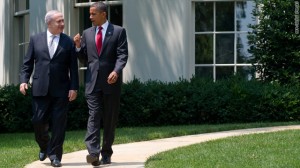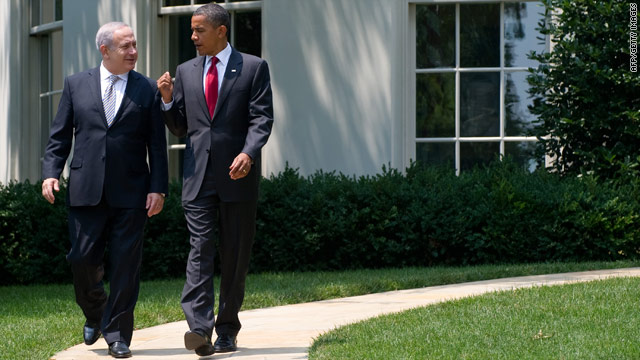
Top Israeli officials rejected United States government reassurances that a renewed sanctions campaign would convince Iran to halt its nuclear programme, countering with statements that said economic measures and tough talk were failing to deter Iran.
The comments came during US Defence Secretary Leon Panetta’s visit to Israel Wednesday. Panetta described the sanctions as “the toughest Iran has ever faced,” and claimed they were working.
“The most effective way to stop Iran from obtaining a nuclear weapon is for the international community to be united, proving to Iran that it will only make itself less secure if it continues to try to pursue a nuclear weapon,” he said.
Panetta’s stance on exhausting non-military options before resorting to force comes in the wake of new sanctions on Iran passed overwhelmingly by the US Congress on Wednesday. The sanctions aim to punish banks, insurance companies and shipping companies that participate in the sale of Iranian oil.
This statement, while forceful, did not reassure Israeli officials. Israel has repeatedly warned that a nuclear Iran would pose a direct and unprecedented threat to its existence. Iran has continued to insist its nuclear programme is “peaceful,” and has not as of yet taken threats of military action seriously.
“Right now the Iranian regime believes that the international community does not have the will to stop its nuclear programme. This must change, and it must change quickly because time to resolve this issue peacefully is running out,” said Israeli Prime Minister Benjamin Netanyahu.
This by no means implies that the US is unwilling to pursue military action should it be deemed necessary. Standing by the Iron Dome anti-rocket battery at Ashkelon, Panetta again reaffirmed that the US would stand by Israel if Iran developed a nuclear weapon.
“I want to reassert again the position of the United States that with regards to Iran, we will not allow Iran to develop a nuclear weapon. Period,” the Pentagon chief said. “We will not allow them to develop a nuclear weapon. And we will exert all options in the effort to ensure that that does not happen. My responsibility is to provide the president with a full range of options, including military options, should diplomacy fail.”
US-Israeli differences on the Iran issue highlight their increasingly strained relationship. The latest batch of sanctions on Iran was ill-received by some who denounced the measures for affecting the Iranian populace rather than government officials. Meanwhile, Israel argues they are not having the intended effect of altering policies endorsed by Iranian leaders.
“The bill imposes collective punishment on the Iranian people by seeking to destroy the Iranian economy,” said Jamal Abdi, policy director for the National Iranian American Council, a group that seeks to reconcile relations between the two countries. “Meanwhile, Iranian regime officials do not suffer from lack of food or medicine and the Iranian Revolutionary Guard Corps enjoys an increasing share of economic power under a sanctions economy.”

